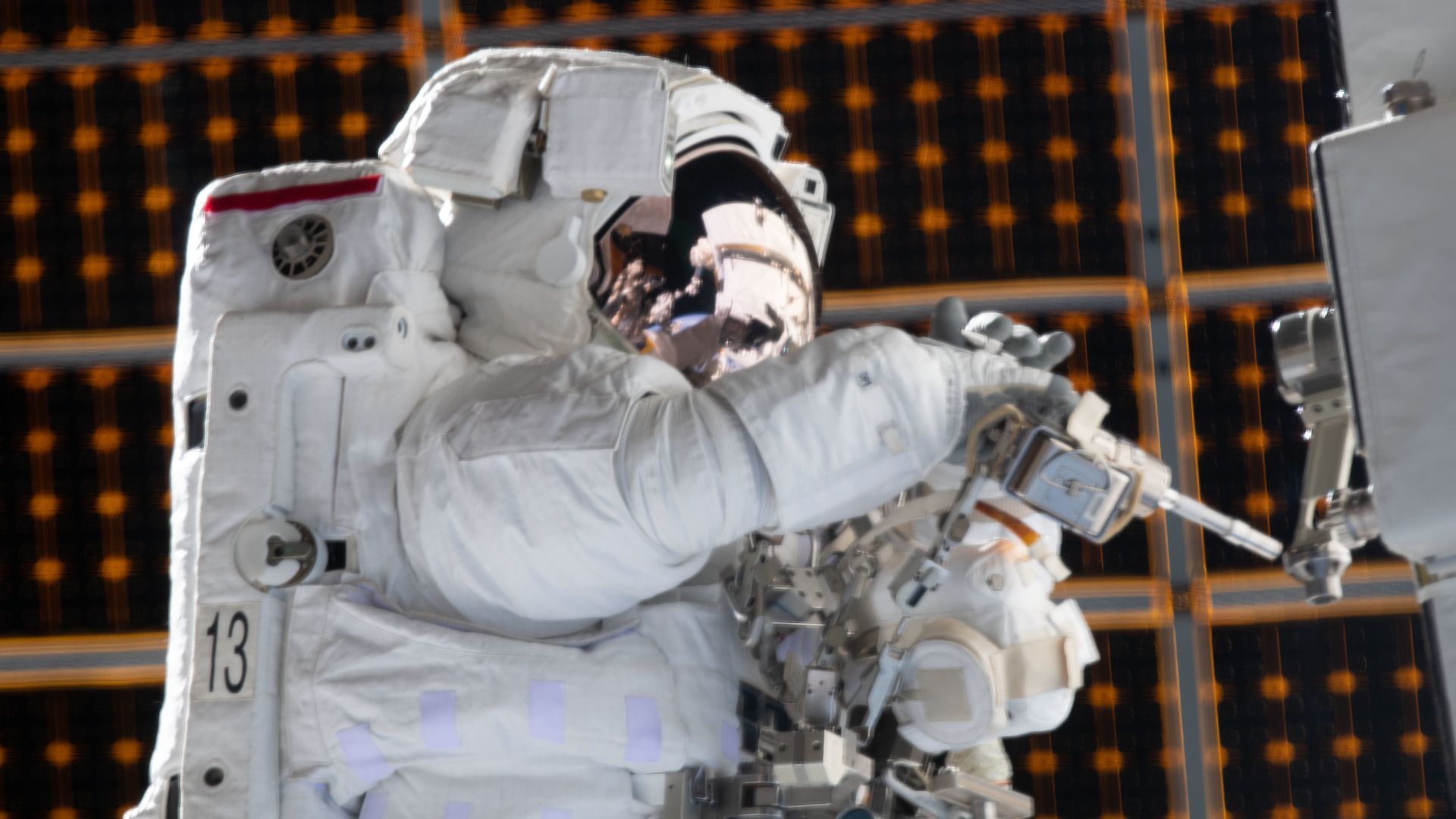NASA astronaut Jessica Meir on a spacewalk. Photo: NASA
Current and former astronauts are speaking out on social media and in interviews in support of the Black Lives Matter movement and protests against police violence.
Why it matters: Astronauts are NASA's public face and usually avoid politically charged topics in public, but as the agency's astronauts have more direct means of communication to the public, those lines are beginning to blur.
- "While they still need to avoid becoming overtly political (as laws govern what civil servants can legally say and do), we have seen some astronauts take to their online channels to become more vocal in the issues of the day," Robert Pearlman, space historian and editor of CollectSPACE.com, told Axios.
Details: Active astronauts Jessica Meir, Victor Glover and others have all publicly posted either explicitly or implicitly supporting the movement.
- Meir tweeted a photo of a black square for Blackout Tuesday, a collective action drawing attention to police brutality and racism.
- Glover explained to a person on Twitter why he can't just stick to space during difficult times like these: "Remember who is doing space. People are. As we address extreme weather and pandemic disease, we will understand and overcome racism and bigotry so we can safely and together do space."
- Former astronaut Leland Melvin shared a powerful story with the Planetary Society about an encounter with the police in high school that could have derailed his life and how he couldn't dream of being an astronaut during the Moon landing in the 1960s because he didn't see anyone who looked like him involved in it.
Background: "The day I showed up in Houston, they basically said rule No. 1 was don't become famous," former astronaut Michael López-Alegria, who began his training as an astronaut in 1992, told Axios. "That's clearly not the case anymore."
- According to López-Alegria, the reasoning behind that rule hinged on the idea that if an astronaut was out there speaking their mind and bringing controversy to the agency, they aren't a team player.
- The perception was that if astronauts courted fame, then they may miss out on possible flight opportunities.
What to watch: NASA's astronaut corps is becoming more diverse, and with that will likely come new conversations — many of them in public — about how the agency's next generation of explorers should engage with the public.
Go deeper: Space industry responds to protests against racism, police brutality
Source: Read Full Article

